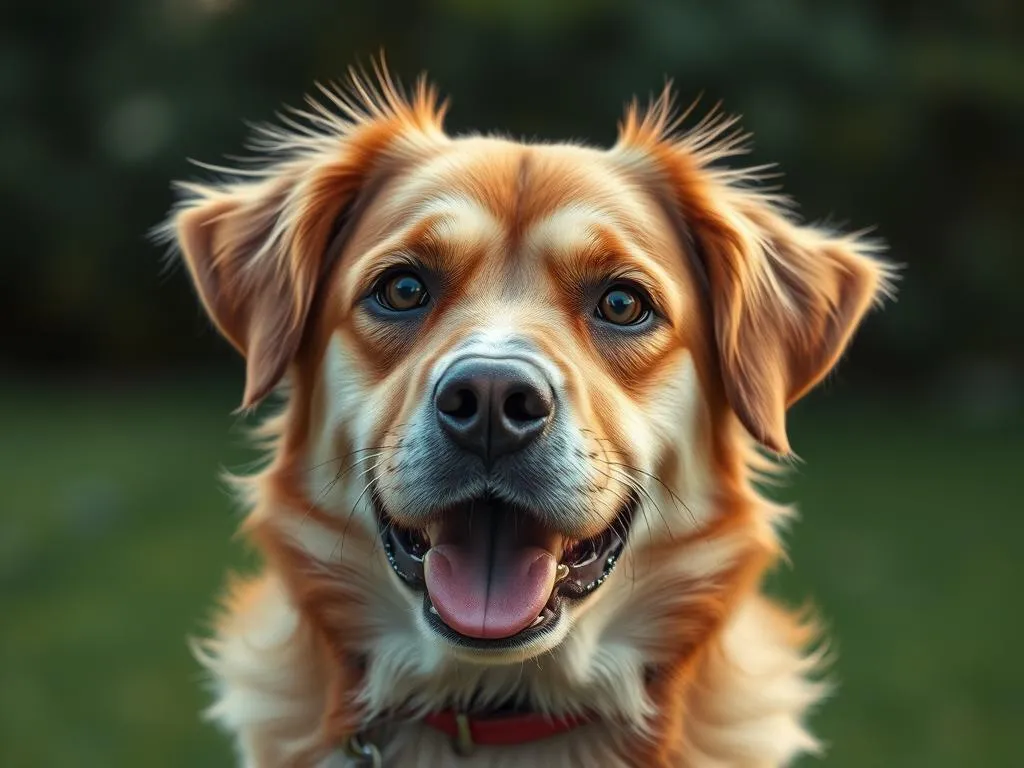
Marrying a dog is a topic that often raises eyebrows and sparks curiosity. While the idea may seem absurd to many, there is an undeniable fascination with the deep bond between humans and their canine companions. This post delves into the various dimensions of this topic, exploring legal, ethical, and social perspectives, as well as the emotional connections we share with our pets.
Understanding the Concept of Animal Marriage
Definition of Marriage
At its core, marriage is a legally recognized union between individuals that often signifies a deep emotional and social bond. Different cultures around the world have unique interpretations of marriage, ranging from monogamous unions to polygamous arrangements. However, a common thread is the notion of consent, mutual support, and a commitment to one another.
In most societies, the definition of marriage strictly involves human participants. This raises questions about the possibility of marrying pets, especially dogs, and what such a union would entail.
Historical Context
Throughout history, there have been instances where animals were involved in marriage-like ceremonies. In ancient cultures, animals were sometimes seen as sacred beings, and their union with humans was thought to bring blessings. For instance, certain Indigenous tribes in North America have historical accounts of rituals that involve animal spirits, though they differ significantly from modern concepts of marriage.
Notable cases, albeit rare, have emerged where individuals have attempted to formalize their relationships with animals. These stories often highlight not only the unique bonds people feel with their pets but also the societal taboos surrounding such ideas.
Legal Perspective on Marrying a Dog
Current Laws Regarding Animal Marriage
In contemporary society, current laws regarding animal marriage clearly outline that animals, including dogs, cannot be legally married. Most legal systems define marriage as a contract between consenting human adults. For example:
- United States: Marriage laws vary by state, but all include a clause that clearly defines marriage as a union between humans.
- United Kingdom: Similar to the U.S., UK law prohibits the marriage of animals, emphasizing the need for mutual consent.
Even in countries with more flexible views on relationships, the legal framework does not recognize animals as capable of entering into marriage.
Consequences of Attempting to Marry a Dog
Attempting to marry a dog could lead to various legal repercussions. Such cases are often viewed as a misuse of the legal system and can result in fines or other penalties. Moreover, they raise ethical questions about the treatment of animals in society.
There have been anecdotal reports of individuals who tried to formalize their relationships with pets, often leading to public ridicule and legal troubles. These cases serve as cautionary tales about the societal and legal boundaries surrounding human-animal relationships.
Ethical Considerations
Animal Rights and Well-Being
The discussion of marrying a dog inevitably leads to ethical considerations regarding animal rights. Organizations like the Humane Society and various animal welfare groups advocate for the well-being of pets, emphasizing that animals cannot give consent and should not be subjected to human legal frameworks.
Arguments against marrying animals center on the idea that such actions could undermine the dignity of the animal. Pets are often viewed as companions rather than partners, and their care and well-being should be prioritized above all else.
Human-Animal Relationships
The emotional bonds between humans and dogs can be profound. Many pet owners describe their dogs as family members, providing companionship, love, and emotional support. However, it is essential to express this love in appropriate ways.
Instead of seeking to formalize a relationship through marriage, pet owners can explore other avenues, such as:
- Celebrating Adoption: Many people host adoption parties to celebrate bringing a new pet into their lives.
- Creating Rituals: Simple rituals, such as special birthday celebrations or pet-friendly outings, can provide meaningful ways to honor the bond.
Social Perspectives
Public Opinion on Marrying Pets
Public attitudes towards marrying pets vary widely. Some individuals express a strong emotional connection to their animals, while others may find the idea completely unacceptable.
Surveys show that a significant majority of the population views the concept of marrying a dog as strange. Cultural factors greatly influence these opinions; societies with stronger norms about human-animal relationships are less likely to entertain the idea of animal marriage.
Media Influence
The media plays a crucial role in shaping societal perceptions of human-animal bonds. Television shows and movies often depict exaggerated relationships between humans and animals, sometimes romanticizing the idea of marrying a pet.
These portrayals can lead to misconceptions about the nature of these bonds, influencing how society views the appropriate expressions of love and commitment to pets. Viral stories about individuals marrying their pets can spark debate and curiosity but often reinforce negative stereotypes about pet owners.
Alternatives to Marrying a Dog
Celebrating the Bond with Pets
While the idea of marrying a dog is legally and ethically problematic, there are numerous ways to celebrate the bond between humans and pets. Pet adoption ceremonies are becoming increasingly popular, allowing pet owners to formally welcome their furry friends into their families.
Creative expressions of commitment can also take many forms:
- Pet-friendly events: Many communities host events that celebrate pets, such as dog shows or “bark parks” where pet owners can socialize while allowing their dogs to play.
- Personalized gifts: Customized pet collars or memory books can serve as meaningful tokens of love and commitment.
Community and Social Activities
Engaging in community activities centered around pets can enrich the bond between owners and their dogs. Dog shows, obedience classes, and community parks provide opportunities for socialization, both for pets and their owners.
Community events not only strengthen the bond with pets but also foster connections among pet owners, creating a supportive network of individuals who share similar interests and passions.
Psychological Aspects
Attachment Theory
Attachment theory offers insight into the emotional dynamics of human-animal relationships. This psychological framework suggests that the bonds we form with our pets can significantly influence our behavior and emotional well-being.
Studies indicate that individuals with strong attachments to their pets often experience lower levels of anxiety and depression. The unconditional love and companionship provided by dogs can fill emotional voids, providing support during challenging times.
The Role of Pets in Human Lives
The role of pets in human lives extends beyond companionship. Dogs, in particular, are known to reduce feelings of loneliness and promote mental health. Their presence can offer comfort and companionship, serving as a source of joy and emotional stability.
The therapeutic benefits of having a dog are widely recognized. Many individuals report that their pets help them cope with stress and provide a sense of purpose. This bond can be incredibly fulfilling, reinforcing the notion that pets are invaluable companions.
Conclusion
The idea of marrying a dog might provoke laughter or disapproval, but it opens up a broader conversation about the nature of human-animal relationships. From legal definitions to ethical considerations, the complexities surrounding this topic reveal much about how society views its bonds with pets.
Ultimately, while the concept of marriage with a dog is not feasible or appropriate, the love and commitment we share with our pets can be celebrated in meaningful, respectful ways. As pet owners, it’s vital to prioritize the well-being of our furry friends while cherishing the unique connections we have with them.
By valuing these relationships appropriately, we can ensure that our bonds with our dogs remain strong, enriching both our lives and theirs.









